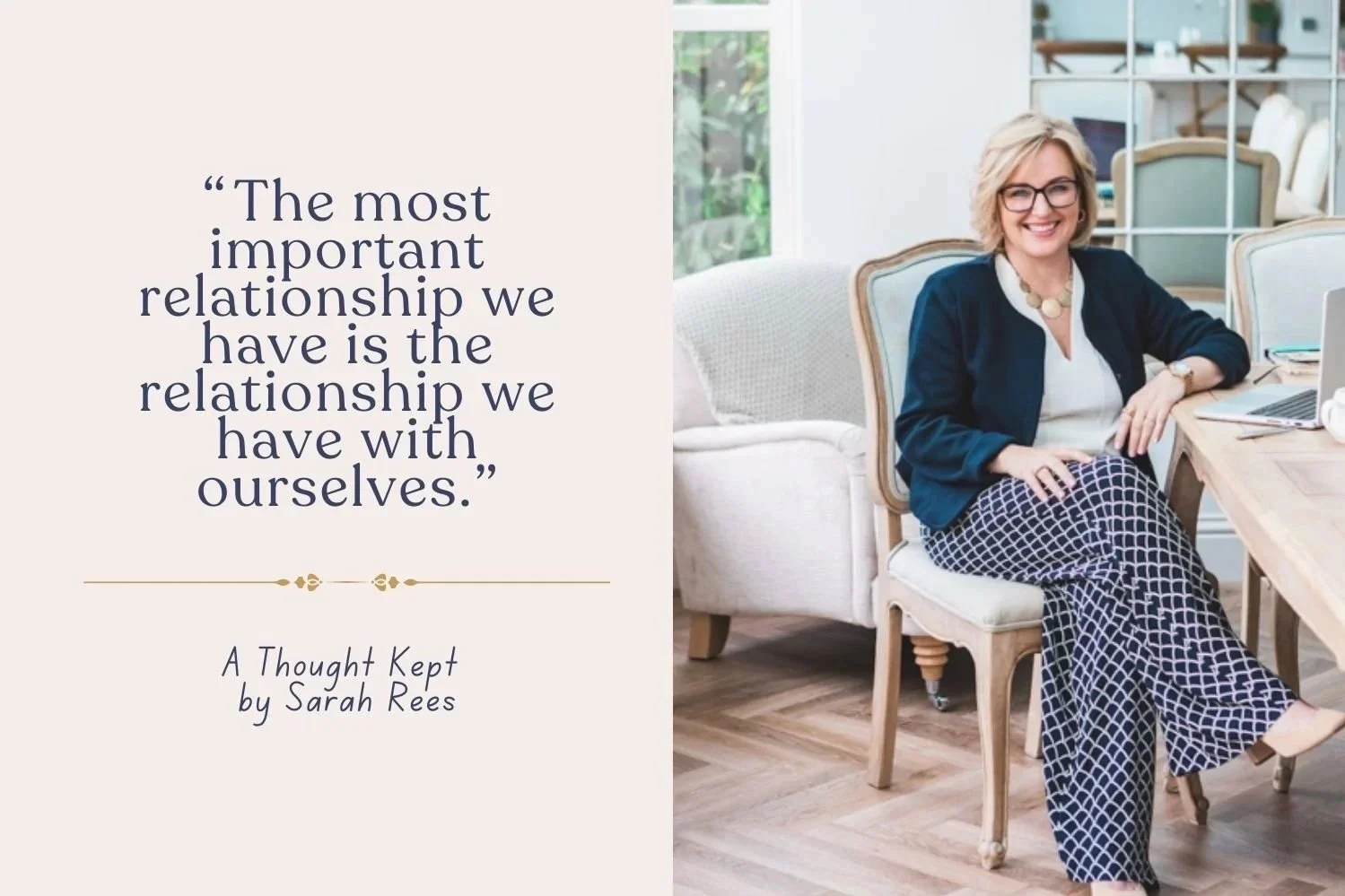How to Pay Attention (When the World Keeps Pulling You Away)
If you’ve been feeling overwhelmed, scattered, or a little bit lost lately, we’re with you.
This is an age of constant distraction — and for many of us, that means we’ve stopped paying attention. Not just to the world around us, but to ourselves.
We move through the day with noise in our ears, tabs open in our brains, and a quiet sense that something is missing — even if we can’t name what.
So what would it mean to really notice our lives again?
The Gift of Noticing
In a recent episode of my podcast, A Thought I Kept, I spoke with Andrea Rathborne — a storyteller and creative leader — about a memory from her early twenties that still lives vividly in her mind. It wasn’t dramatic. It wasn’t loud. It was a simple, wordless exchange with an elderly woman in Greece, sitting on a stone step, snapping beans in the morning light.
There were no profound quotes. No life-changing advice. But that small, silent moment stitched itself into the fabric of Andrea’s life. She describes her memory as a kind of Morse code, made of dots and dashes — tiny gestures and longer scenes that, together, form her library of moments.
But this conversation made me think: what happens when we lose the ability to notice?
Distraction Is a Mental Health Issue
There’s growing research around attention as a form of wellbeing. When we’re constantly pulled between notifications, tasks, and worries, our brain stays in a reactive state — flooding our nervous system and draining our energy.
Distraction disconnects us, from ourselves, from others, from the present moment.
But when we pause long enough to really notice the light in the kitchen, the warmth of a shared task, the quiet rhythm of our breath, something shifts.
Paying attention does three powerful things:
Regulates the nervous system: Deep presence signals safety to the brain. It slows the stress response and brings us into calm.
Builds emotional resilience: When we’re present, we can process emotions as they arise — instead of stuffing them down or numbing out.
Reawakens connection: To beauty. To meaning. To other people. To ourselves. And that connection is the antidote to loneliness.
What Are We Even Paying Attention To?
That’s the other part of this, right? It’s not just about being mindful for the sake of it. It’s about what we’re turning toward. Noticing can be the very beginning of holding on.
Because when we pay attention, we don’t just see the world more clearly. We start to remember who we are.
So what’s worth noticing?
The texture of your day — not just the events, but how they feel
The people you love, and the way their voice sounds when they’re excited
The in-between moments— reading a beloved book, making tea, watching the rain
Your own thoughts — especially the positive ones you keep coming back to
These are the things that make up a life. And there’s value in noticing them.
5 Everyday Ways to Pay Attention (That Actually Feel Good)
You don’t need a 30-minute meditation practice or a digital detox to get started.
Here are a few gentle ways to return to presence today:
Choose one daily ritual to do without distraction. Drink your coffee without scrolling. Fold laundry while listening to yourself. Let one small thing become sacred.
Keep a Dot + Dash Journal. Inspired by Andrea’s Morse code metaphor, jot down: One dot: a fleeting moment that caught your attention. One dash: a longer memory or thought you want to hold onto. This builds your own “library of moments.”
Practice sensory noticing. What can you see, hear, smell, taste, or touch right now? Anchor yourself with one detail from each sense.
Look for everyday awe. Wonder is good for the nervous system. A tree against the sky, your child’s laugh, the smell of lavender. Notice something that makes you come alive, even a little.
Draw your day in five lines. Not an artist? Even better. Use five quick lines or shapes to represent how your day feels — not what happened, but what it felt like. A scribble. A curve. A burst. It’s a way to bypass the brain and check in through creativity.
If You’re Feeling Lost…
Start with your attention. Don’t try to solve everything at once. Just slow down enough to notice the moment you’re in.
Name one thing. Feel one breath. Stay with it for a beat longer than you normally would.
And maybe that becomes your first dot — the first piece of a new way of being. Not a perfect or polished one. But a path back to presence, and maybe even to yourself.
Want to Go Deeper?
You can listen to my full conversation with Andrea Rathborne on the podcast here:
Or join me over on Substack at More Good Days, where I share weekly reflections, prompts, and gentle reminders that life is made of tiny things, that are still yours to notice. .







